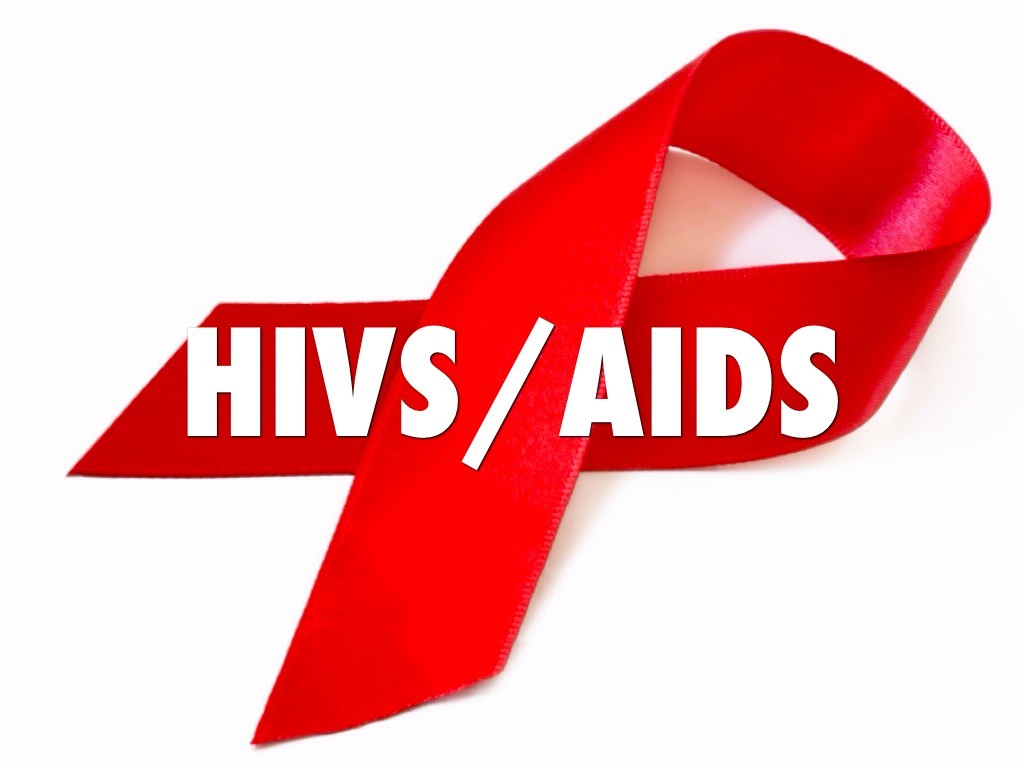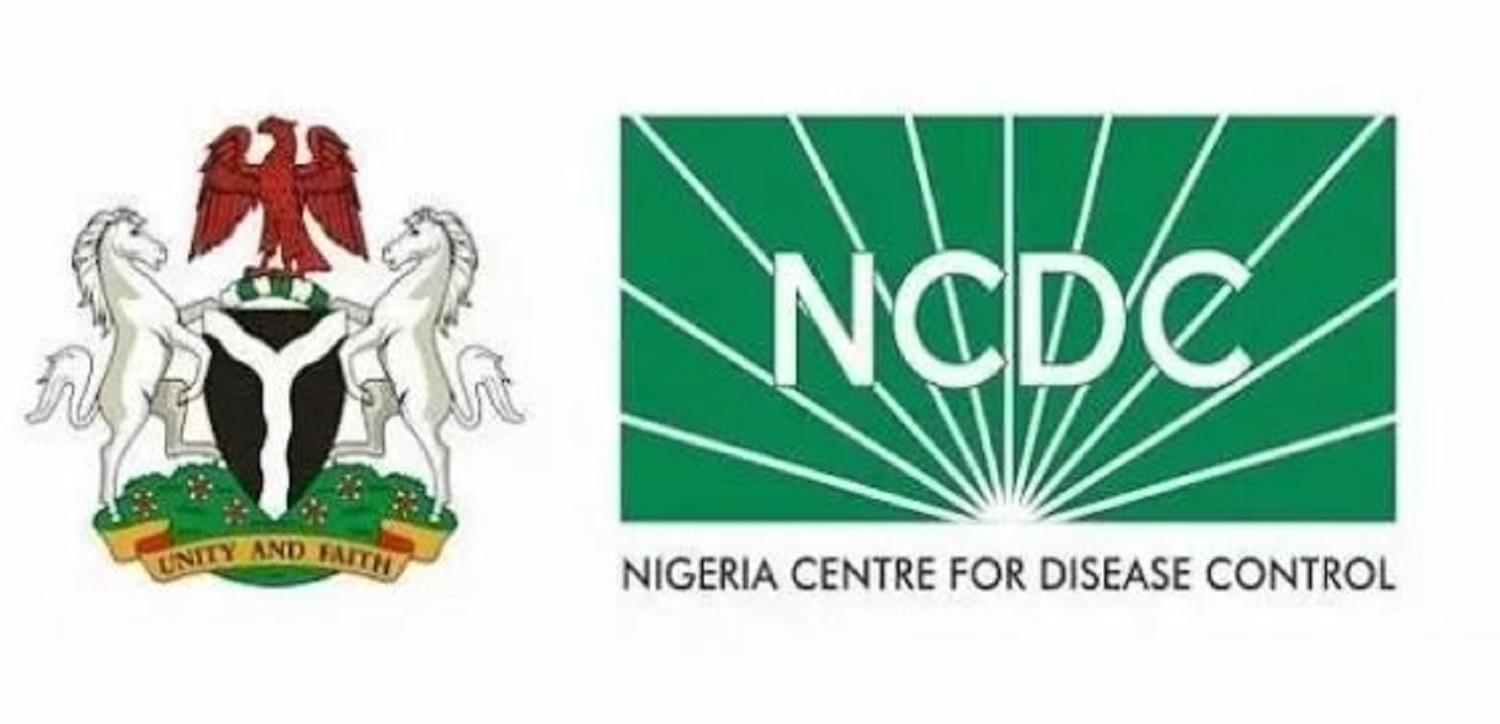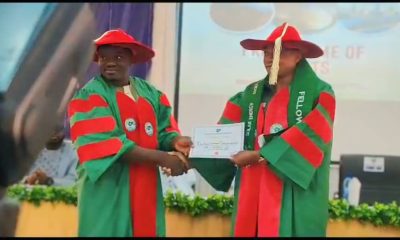Health
NASS to Amend National Health Act, Considers Funding for Gunshot Victims

The Speaker of the House of Representatives, Femi Gbajabiamila, says the house is working toward amending the National Health Act to address gaps in accessing healthcare, including funding for gunshot victims.
He said this at the opening of the 44th/45th Annual General and Scientific Meeting (AGSM) of the West African College of Physicians (WACP), Nigeria Chapter in Abuja.
Gbajabiamila, who was represented by Hon.
Tanko Sununu, the Chairman, House Committee on Health, said that in the amended act, provisions were made for healthcare service providers to claim funds used to treat gunshot victims during emergencies.He said the consideration was important as increasing cases of ‘no payment, no service’ for victims of gunshot wounds posed serious concern.
According to him, Nigeria’s health indices remain poor and the national assembly will play its role through legislation to help address the causes of poor health delivery system in the country, one of which is accessibility.
He said “in the next days to come, we will consider the amendment of the National Health Act which provides the basic framework upon which healthcare in the country is developed.
“The house of representatives is waiting for concurrence from the executive arm of government on the issue of emergency treatment for gunshot victims. We have tried to address the issue of gunshot injuries in the amended Health Act.
“In the previous Act, there was a gap on how this type of emergency should be addressed when presented at the hospital. The source of payment and services rendered to gunshot victims has become a worrisome issue.
“In the amended Health Act, we tried to proffer solutions where practitioners can claim the bills for services rendered to a gunshot victim. This will allow victims to access emergency healthcare promptly.”
The speaker, who noted that the country was currently facing three major crises of Coronavirus Disease (COVID-19), insecurity and dwindling resources, added that the crises had significantly impacted health indices.
He said “NASS is working toward addressing the challenges by providing effective legislation, oversight, and representation.
“When the COVID-19 came to Nigeria we only had four laboratories to diagnose the virus but due to active budgetary allocation, we now have more than 130 laboratories nationwide that can be used to diagnose the virus.
“We are also trying to address issues affecting the health sector by making healthcare through the health insurance scheme mandatory in the country.
“The national assembly passed the bill already and we are hoping that the executive arm assent to the bill so that every Nigerian will have basic minimum package that he or she can use to sustain health.
“The Basic Healthcare Provision Fund will not only come with a minimum package, but will also improve the health sector’s readiness to address emergencies.
“We are also considering the Infectious Diseases Control Bill which tries to provide for emergency preparedness in the country.”
The speaker, while commending the WACP, assured that the NASS would consider all recommendations made by it after its AGSM and utilise it to influence legislative activities.
The Minister of State for Health, Dr Olurunnimbe Mamora, listed the causes of Nigeria’s poor health indices to include inadequate human resources, poor data management and limited funding to scale up coverage of evidence-based interventions.
Others are the urban/rural skilled distribution of frontline workers, brain drain of skilled health workers to the western world, and COVID-19, which further compounded the health challenges in the country.
Mamora called on Ministries Departments and Agencies and other health partners to support efforts toward improving the system and providing quality services to citizens.
Other stakeholders at the event charged the WACP, Nigeria chapter, to utilise the meeting in charting a way forward for the health sector and proffer workable solutions.
The FCT Minister, Mr Muhammad Bello, represented by the acting Secretary for Health, Dr Muhammed Kawu, and the Executive Director, National Primary Health Care Development Agency (NPHCDA), Dr Faisal Shuaib, represented by Dr Usman Adamu, Director, Primary Health Care Systems Development of the agency were present.
Others were the WACP President represented by the WACP Director of Grants, Nigeria Chapter, Dr Benjamin Ogochukwu, and Chief Medical Directors, among other stakeholders.
The theme of the 2021 WACP meeting is: “Nigeria’s Health Indices; Challenges and Prospects in a Contemporary World”.
The WACP is a professional body for medical specialists within the West African sub-region.
The medical specialists included doctors, physicians, and nurses. (NAN)
Health
Expert Advocates For Elimination of Mother-to-Child Transmission of HIV Through HIV Self Testing.

From Attah Ede, Makurdi
Eliminating mother-to-child transmission of HIV in Nigeria is an achievable goal, but it requires innovative approaches that can address the unique barriers faced by women in underserved communities.
An expert on health related matters, Dr Godwin Emmanuel stated while interacting with newsmen as part of activities commemorating the just concluded World Aids Day in Makurdi, the Benue State capital.
Dr.
Emmanuel who is the Managing Partner/Impact Officer of MOZUK Future Solutions Limited, stated that the World AIDS Day have come and gone, yet Nigeria government must not fail to examine some of the gaps that must be urgently bridged as a nation.He explained that each year, thousands of children are born with HIV, largely due to inadequate access to testing and treatment during pregnancy, disclosing that the Joint United Nations Programme on HIV/AIDS (UNAIDS) estimates that Nigeria contributes about 22% of global paediatric HIV cases which indicates the urgent need for innovative approaches to curb MTCT.
“This brings me to a recent study in Lagos and Kano which demonstrated how HIV self-testing kits offer a practical, effective, and scalable solution to our MTCT challenges.
“The study interrogates an initiative seeking to integrate HIV Self-Test (HIVST) kits into TBA services as part of a broader strategy to eliminate MTCT.
“The intervention targeted underserved communities where healthcare access is limited, leveraging the trust and accessibility of TBAs to distribute self-testing kits and provide essential counselling”.
According to him, the study, led by Dr. Toriola Adebayo of Lagos State University Teaching Hospital and Dr. Usman Bashir of Aminu Kano Teaching Hospital, articulated the role of local expertise in advancing healthcare solutions tailored to community needs.
“In this intervention, 182 TBA clinics across three local government areas (LGAs) in Lagos and Kano States were equipped with HIVST kits. TBAs received extensive training on the administration of the tests, pre- and post-test counselling, and linkage to care for those who tested positive.
“Among the 1,982 pregnant women enrolled in the study, pre-intervention testing rates were markedly low, with just 60% in Lagos and 38% in Kano having ever been tested for HIV. After the introduction of HIVST, testing uptake surged, with all participants voluntarily using the kits during antenatal visits.
“The results were promising:
HIV Positivity Rate: An overall positivity rate of 0.8% was recorded, with slightly higher rates in Lagos (1.1%) compared to Kano (0.8%).
“First-Time Testers: Remarkably, 80% of those who tested positive were undergoing HIV testing for the first time.
Linkage to Care: All HIV-positive individuals were successfully linked to ART services, demonstrating the effectiveness of the TBA-led model in bridging gaps in healthcare access.
“The success of this initiative exemplifies how HIVST can become a cornerstone of affirmative action against paediatric HIV infections, which was also a critical focus of World AIDS Day observances.
“As evidenced by the success of the Lagos and Kano initiative, when confidentiality, stigma reduction, and leveraging trusted community figures like TBAs are prioritised, HIVST has the potential to transform PMTCT efforts across Nigeria.
“This is even more so with sustained investment, community buy-in, and political will. This can move us closer to a future where no child is born with HIV and every mother has the opportunity to live a healthy, fulfilling life”, Dr. Emmanuel alluded.
He further revealed that HIV self-testing kits offer a simple, private, and effective means of determining one’s HIV status, adding that the kits allow individuals to test themselves using a saliva sample or a small drop of blood, with results available in minutes.
Highlighting the importance, the health, said the convenience and confidentiality of this method are particularly appealing to those who might avoid traditional testing due to stigma or fear of disclosure.
He stated that the fear of being judged or ostracised often prevents pregnant women from seeking HIV testing, stressing that HIVST kits allow individuals to test in the comfort of their homes or a private setting, without fear of disclosure. This is particularly crucial for pregnant women, who may face compounded stigma if diagnosed with HIV.
“Increased Testing Uptake as demonstrated shown the intervention in Lagos and Kano demonstrates that when provided with confidential and convenient testing options, more women are willing to know their HIV status. Early diagnosis is key to initiating ART, which can reduce the risk of MTCT to less than 1%.
Health
NAFDAC Supports Herbal Medicine, says Must go Through Clinical Trials

Prof. Mojisola Adeyeye, the Director-General, National Agency for Food and Drug Administration and Control (NAFDAC), says she supports herbal medicine production in the country.
She said this on a Forum in Abuja.
She, however, explained that for NAFDAC to accommodate herbal medicine as part of its regulated products, such herbal preparation must go through clinical trials.
She disclosed that the major challenge to herbal medicine practitioners is how to secure resources to finance clinical trial for their products, which she said cost a lot of money because it is a major aspect in medicine.
She added that “I believe in natural medicine, I was brought up with it, like the Agbo that we were taking and it was working.
“Herbal medicine or natural medicine work, before I came back home from the United States, I started a research on natural medicine for the cure of sickle cell, my niece who is a sickler got on it and her episodes decreased by 70 to 80 per cent.”
She explained that the agency gives approval for natural medicines once proven it is not toxic, and they have been used and tested before.
“We approve them for two years and then they can renew if they do clinical trial because it is something we are not used to in Nigeria.
“China supports many of these herbal practitioners.”
The director-general also spoke about using fruits and vegetables as medicine to cure some illnesses, adding that some of these fruits contain antioxidants that prevent cancer. (NAN)
Health
NCDC Calms Fears over XEC COVID-19 Variant, Urges Continued Vigilance

The Nigeria Centre for Disease Control and Prevention (NCDC) has allayed public fears over the detection of the SARS-CoV-2 XEC subvariant globally.
The Director-General of the centre, Dr Jide Idris, did this in a public advisory issued on Saturday night in Abuja, made available to newsmen.
Idris reassured Nigerians that the variant, though identified in 29 countries, has not been detected in Nigeria.
He said that the XEC subvariant, a descendant of the Omicron JN.
1 lineage, was currently classified as a Variant Under Monitoring (VUM).According to him, this means that it is being closely observed for potential concerns but does not yet pose significant risk.
“The XEC sub-variant has been reported in Europe, Asia, North America, and Africa, with Botswana being the only African country to record cases so far.
“While the sub-variant exhibits higher transmissibility, there is no evidence of increased disease severity,” he said.
The NCDC boss said that Nigeria had been monitoring the JN.1 variant, classified as a Variant of Interest (VOI), which has been present in the country since January.
He assured Nigerians that the National COVID-19 Technical Working Group was conducting continuous surveillance and data analysis.
Additionally, he said that a dynamic risk assessment was being organised to strengthen the country’s preparedness and response capabilities.
He urged health facilities nationwide to ramp up COVID-19 testing and forward positive samples to accredited laboratories for genomic sequencing.
He encouraged the public to maintain vigilance and adhere to basic health protocols, including handwashing, mask usage in crowded spaces, and ensuring proper ventilation indoors.
He advised vulnerable groups, such as the elderly and those with underlying health conditions, to remain cautious.
“COVID-19 remains a significant risk, particularly for the elderly, individuals undergoing cancer treatment, organ transplant recipients, and those with suppressed immune systems.
“We urge Nigerians to get vaccinated and receive booster doses as recommended,” he said.
The director-general also called on state governments to enhance public health infrastructure, provide resources for improved surveillance and diagnostics, and promote public health education.
He reaffirmed the agency’s commitment to providing Nigerians with accurate and timely information on the evolving COVID-19 situation globally.
He urged citizens to avoid misinformation and rely on verified updates from its platforms.
“For assistance, the public is encouraged to contact the NCDC via its toll-free number 6232 or, WhatsApp: 07087110839, Twitter: @NCDCGov and Facebook: @NCDCgov,” he said.
Report says that the XEC variant of COVID-19 is a recombinant strain, meaning it results from the combination of genetic material from two or more existing variants of the SARS-CoV-2 virus.
Recombinant variants can emerge when different strains infect the same individual and exchange genetic material during replication.
This process may lead to new variants with unique properties, such as increased transmissibility, virulence, or resistance to immunity.
While thousands of mutations have been tracked globally, only a few variants are monitored for public health significance.
Nigeria’s NCDC and global health organizations like the WHO continue genomic surveillance to monitor and respond to emerging variants.(NAN)























